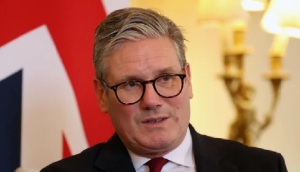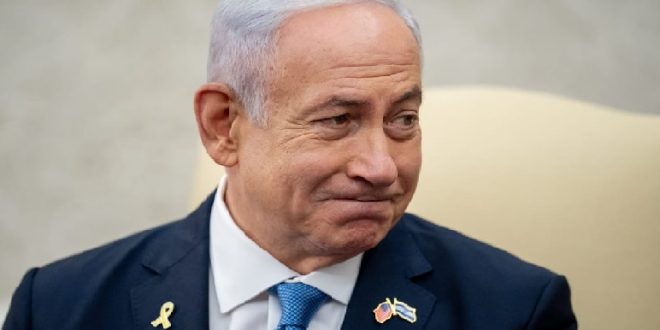28-07-2024
LONDON: Britain’s new government said; it was dropping its predecessor’s query of the International Criminal Court’s (ICC) jurisdiction to issue an arrest warrant for Israeli Prime Minister Benjamin Netanyahu.
The ICC’s chief prosecutor has requested warrants for Netanyahu and his defence minister, Yoav Gallant, on suspicion of war crimes, infuriating Israel and irritating its closest ally, the United States. He requested similar warrants for three leaders of the Palestinian militant group Hamas.
 Britain, an ICC member state, had asked the court to be allowed to file legal observations on whether the ICC could exercise jurisdiction over Israelis “in circumstances where Palestine cannot exercise criminal jurisdiction over Israeli nationals (under) the Oslo Accords” but since then, the centre-left Labour Party has taken power from the Conservatives in an election, and Prime Minister Keir Starmer’s spokesperson told reporters the new government would drop the query “in line with our long-standing position that this is a matter for the court to decide on”.
Britain, an ICC member state, had asked the court to be allowed to file legal observations on whether the ICC could exercise jurisdiction over Israelis “in circumstances where Palestine cannot exercise criminal jurisdiction over Israeli nationals (under) the Oslo Accords” but since then, the centre-left Labour Party has taken power from the Conservatives in an election, and Prime Minister Keir Starmer’s spokesperson told reporters the new government would drop the query “in line with our long-standing position that this is a matter for the court to decide on”.
“The government believes very strongly in the rule of law, both internationally and domestically, and the separation of powers.”
Some British Jewish organizations denounced the decision. The Jewish Leadership Council called it a regressive step and voiced concerns it could signal a policy shift “away from Israel being a key UK ally” in a statement posted on social media site X.
While the Conservatives frequently chafed against supranational jurisdictions during their 14 years in power, not least the European Union and the European Court of Human Rights, Starmer, a former lawyer, has struck a different tone.
Last week he told European leaders that his government would have a “profound respect for international law”.
The ICC, which handles war crimes and crimes against humanity, has been investigating both sides in the conflict between Israel and the Palestinians since 2021. In that year, the ICC ruled that it did have jurisdiction after Palestinian authorities signed up to the court in 2015, having been made a United Nations observer state. Some scholars and member states said that decision left a ruling on the interpretation of the 1993 Oslo Accords regarding Palestinian jurisdiction over Israeli nationals for a later stage in the proceedings.
 The UK’s decision to drop the legal challenge is unlikely to speed up the ICC case as over 60 other states and interested parties have also been allowed to give their legal arguments to judges mulling the request for arrest warrants for senior Israeli and Hamas officials.
The UK’s decision to drop the legal challenge is unlikely to speed up the ICC case as over 60 other states and interested parties have also been allowed to give their legal arguments to judges mulling the request for arrest warrants for senior Israeli and Hamas officials.
The International Criminal Court’s prosecutor said he had requested arrest warrants for Israeli Prime Minister Benjamin Netanyahu, his defence chief and three Hamas leaders over alleged war crimes.
ICC prosecutor Karim Khan said in a statement issued after more than seven months of war in Gaza that he had reasonable grounds to believe the five men “bear criminal responsibility” for alleged war crimes and crimes against humanity.
He said he had applied for an arrest warrant for Israeli Defence Minister Yoav Gallant as well as for Netanyahu. They have overseen Israel’s offensive against Hamas in Gaza since the Palestinian militant group’s deadly Oct. 7 raid on Israel.
Khan has also applied for arrest warrants for Hamas chief Yahya Sinwar; Mohammed Al-Masri, the commander-in-chief of the military wing of Hamas who is widely known as Deif; and Ismail Haniyeh, head of Hamas’ Political Bureau.
A panel of pre-trial judges will determine whether the evidence supports the arrest warrants but the court has no means to enforce such warrants, and its investigation into the Gaza war has been opposed by the United States and Israel. (Int’l Monitoring Desk)
 Pressmediaofindia
Pressmediaofindia




